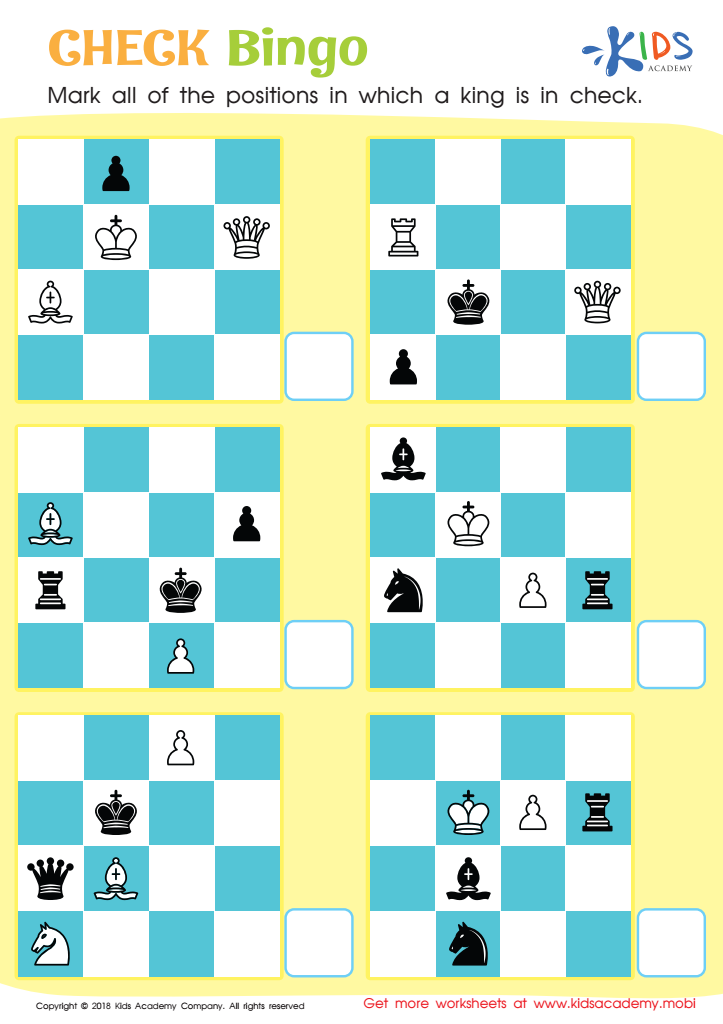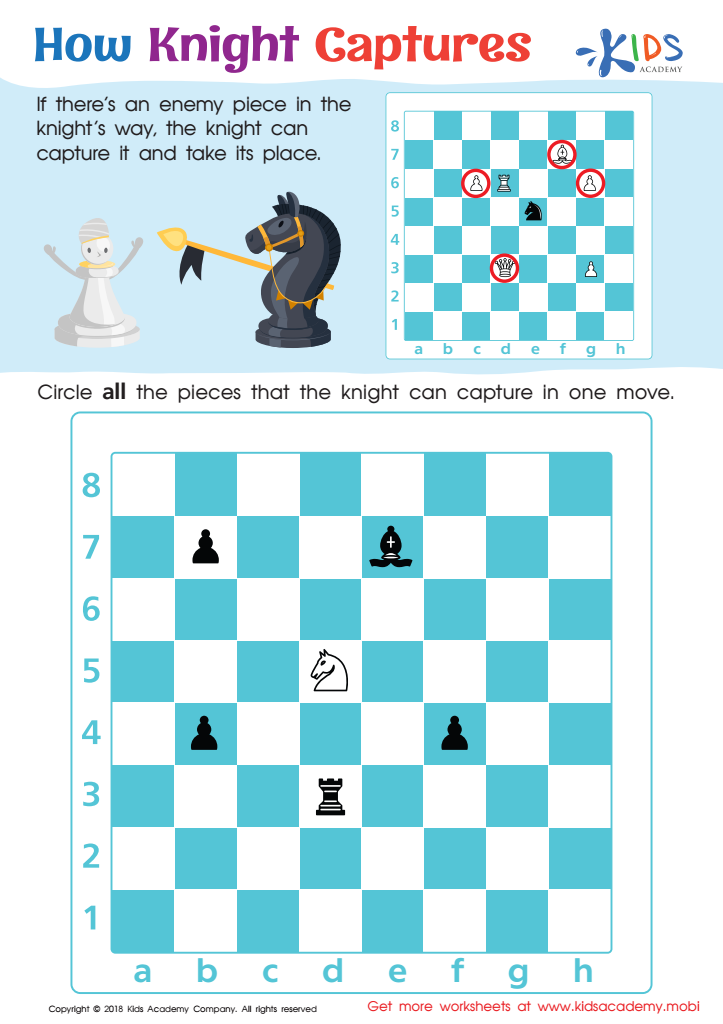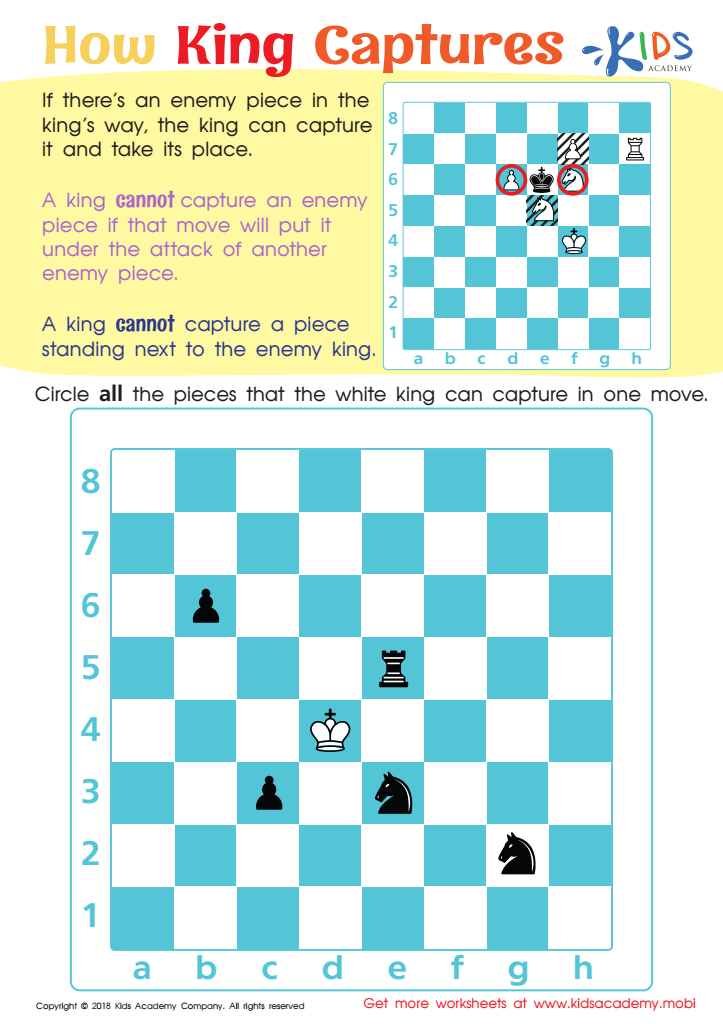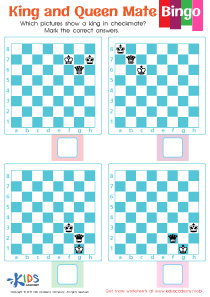Problem-solving practice Normal Chess Worksheets for Ages 7-8
3 filtered results
-
From - To
Boost your child's critical thinking and strategic skills with our Problem-Solving Practice Normal Chess Worksheets, perfect for ages 7-8. These engaging worksheets are designed to develop your child's ability to analyze, plan, and execute chess moves effectively. Through various challenging scenarios, youngsters can enhance their problem-solving abilities while having fun. Each worksheet provides step-by-step problems that cater to young learners' skill levels, fostering both confidence and proficiency in chess. Our worksheets not only support chess learning but also cultivate patience, concentration, and logical thinking essential for overall academic growth. Transform your child's chess learning into an enjoyable and productive experience today.


Check Bingo Worksheet


How Knight Captures Worksheet


How King Captures Worksheet
Embedding problem-solving practice through activities like normal chess for children aged 7-8 is profoundly beneficial for their development. At this critical learning stage, children are honing cognitive abilities that will form the foundation for future complex thinking.
Chess, inherently a strategy game, encourages players to anticipate consequences and think multiple steps ahead, cultivating crucial executive functions such as planning, foresight, and impulse control. Regularly engaging in these mental exercises strengthens children's brains similarly to how physical activities build muscles.
Additionally, chess problems develop pattern recognition skills and foster creativity by encouraging children to devise and discover novel solutions. This strategic play enhances critical thinking and enhances their spatial reasoning abilities, which are directly correlated to success in STEM subjects.
Moreover, playing chess can improve attention span, concentration, and patience. Children learn the value of slow, deliberate thinking and how to recover from mistakes. This resilience and emotional control are valuable life skills.
Engagement in chess also provides a constructive, screen-free indoor activity, fostering social interaction and sportsmanship as children often play together or follow organized games overseen by adults, further promoting interpersonal skills.
Therefore, parents and teachers should value and integrate chess problem-solving to holistically nurture their child’s intellectual and emotional growth.
 Assign to My Students
Assign to My Students





















